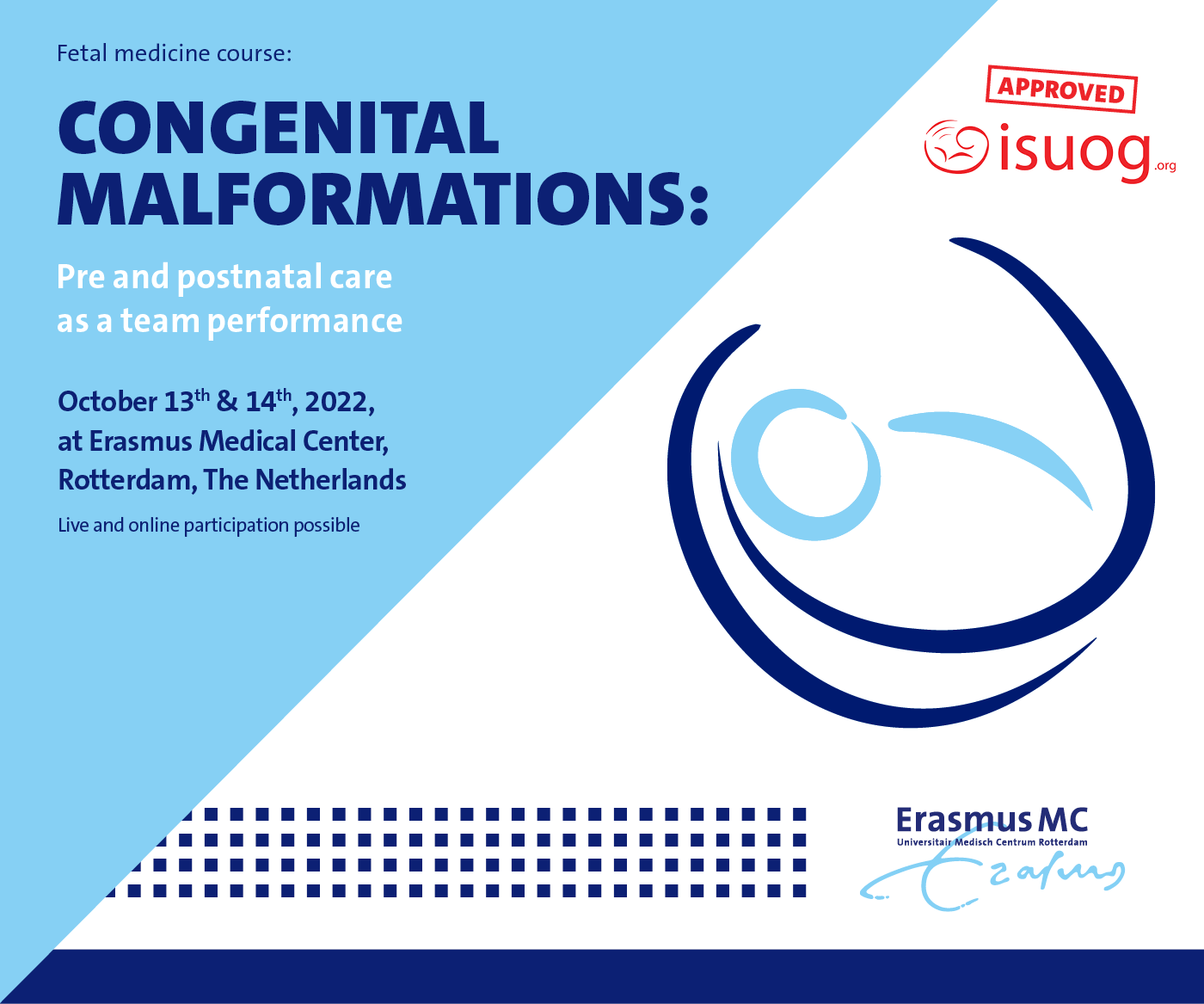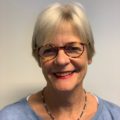This two-day course links prenatal diagnosis to postnatal treatment and care and long term outcome. We will discuss the physiology, prenatal diagnosis, treatment options and the impact on the life course of the future child. Experienced speakers, working within the prenatal, pediatric or genetic field, will provide the lectures. For the live participants a number of OPUS ultrasound simulators are present to test and experience their ability to diagnose prenatal congenital anomalies. Target audience Gynecologists, Fetal and Maternal Medicine specialists, Pediatricians, Clinical Geneticists and trainees

Fetal ultrasound as a screening test and diagnostic tool became part of regular antenatal care. If a structural congenital malformation or another (fetal) abnormality is diagnosed, a period of uncertainty starts for the future parent(s). For most of them it is very important to get as much information as possible. Not only do they want to know what the current condition of their baby is, but they also want to know what to expect during the first year(s) after birth, including the meaning of the final diagnosis, the possibility of treatment, the lifelong health problems for their child, and the impact on their whole family.
The first professional, who tells them there is something wrong, plays a significant role. For that reason the ultrasonographer / fetal medicine specialist not only needs to have the knowledge and skills to make the right (differential) diagnosis. It is also important to have knowledge regarding postnatal care, treatment and outcome.
Our philosophy is that fetal medicine is a team performance in order to give the (unborn) child and the parent(s) the best care, in a pre- and postnatal continuous way.
During the first day of the course we will focus on urological, kidney and genital malformations. The second day we will discuss polyhydramnios in relation to congenital and genetic malformations and in addition our focus will be on congenital diaphragmatic hernia and congenital heart malformations. During both days we will discuss the physiology, prenatal diagnosis, treatment options and the impact on the life course of the future child.
Please find the full programme here:
Congenital malformations Rotterdam Oct2022
Registration link:
https://www.eventure-online.com/eventure/login.form?P77763682-f7a8-4aa2-acae-b410faf0b42b
Speakers:


